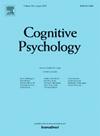不确定判断中分布的有损编码
IF 3
2区 心理学
Q1 PSYCHOLOGY
引用次数: 0
摘要
人们经常对不确定的事实和事件做出判断,例如“德国将赢得世界杯”。不确定性下的判断通常是参照一种规范性理想来研究的,根据这种理想,人们应该做出有高概率正确的猜测。根据这种规范理想,如果你认为德国队实际上有可能获胜,你就应该说德国队将赢得世界杯。我们认为,在许多情况下,不确定性下的判断最好被理解为有损压缩的行为,其目标是有效地编码概率分布,而不是表达单个结果的概率。我们测试了从我们的理论衍生出来的正式计算模型,在四个实验中显示,它们准确地预测了人们如何做出和解释猜测。我们的描述很自然地解释了为什么人们不喜欢毫无意义的正确猜测(比如“某个国家将赢得世界杯”),并揭示了明显的次优判断模式,比如连接谬误。本文章由计算机程序翻译,如有差异,请以英文原文为准。
Lossy encoding of distributions in judgment under uncertainty
People often make judgments about uncertain facts and events, for example ‘Germany will win the world cup’. Judgment under uncertainty is often studied with reference to a normative ideal according to which people should make guesses that have a high probability of being correct. According to this normative ideal, you should say that Germany will win the world cup if you think that Germany is in fact likely to win. We argue that in many cases, judgment under uncertainty is instead best conceived of as an act of lossy compression, where the goal is to efficiently encode a probability distribution, rather than express the probability of a single outcome. We test formal computational models derived from our theory, showing in four experiments that they accurately predict how people make and interpret guesses. Our account naturally explains why people dislike vacuously-correct guesses (like ‘Some country will win the world cup’), and sheds light on apparently sub-optimal patterns of judgment such as the conjunction fallacy.
求助全文
通过发布文献求助,成功后即可免费获取论文全文。
去求助
来源期刊

Cognitive Psychology
医学-心理学
CiteScore
5.40
自引率
3.80%
发文量
29
审稿时长
50 days
期刊介绍:
Cognitive Psychology is concerned with advances in the study of attention, memory, language processing, perception, problem solving, and thinking. Cognitive Psychology specializes in extensive articles that have a major impact on cognitive theory and provide new theoretical advances.
Research Areas include:
• Artificial intelligence
• Developmental psychology
• Linguistics
• Neurophysiology
• Social psychology.
 求助内容:
求助内容: 应助结果提醒方式:
应助结果提醒方式:


